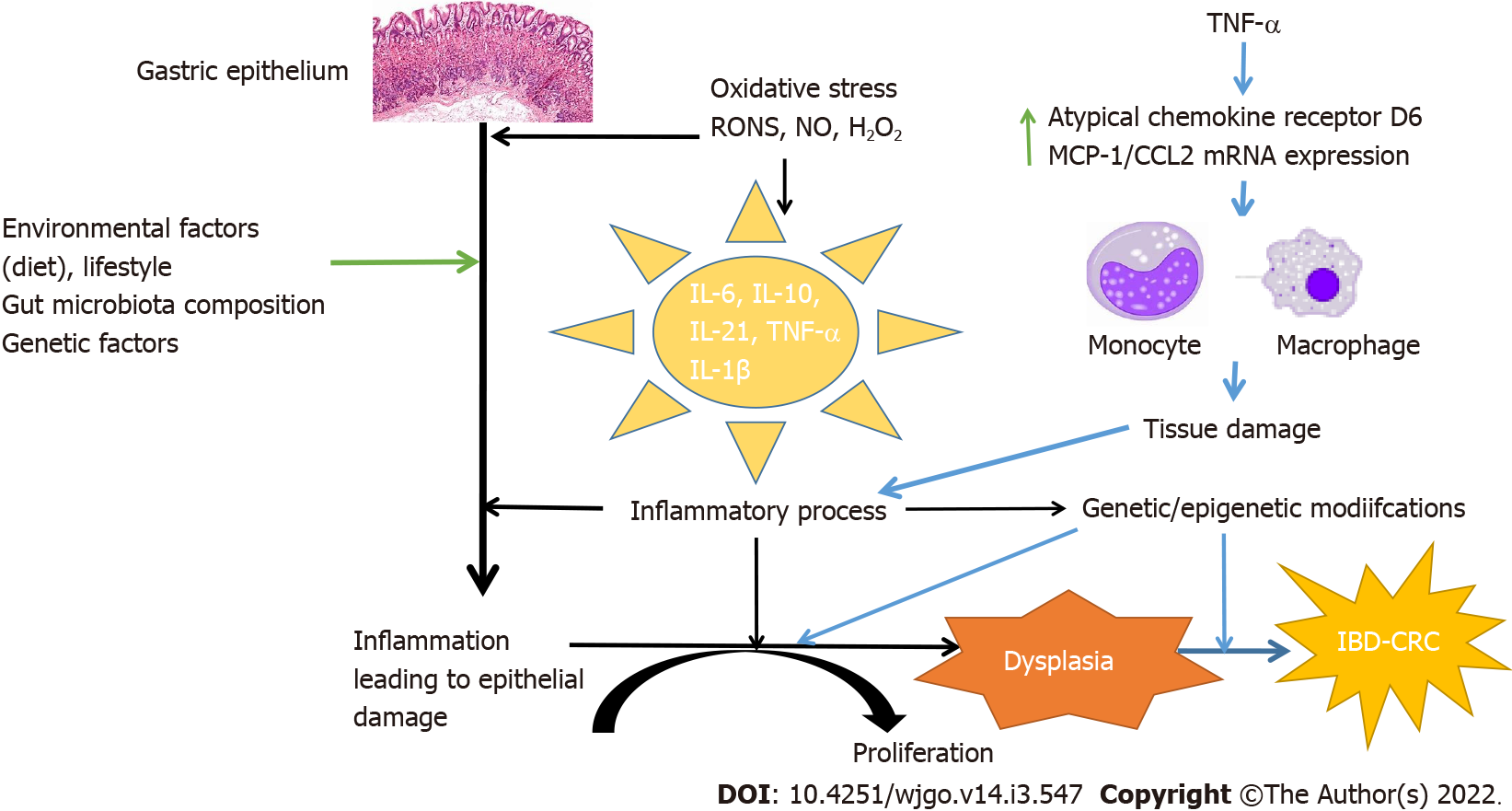Copyright
©The Author(s) 2022.
World J Gastrointest Oncol. Mar 15, 2022; 14(3): 547-567
Published online Mar 15, 2022. doi: 10.4251/wjgo.v14.i3.547
Published online Mar 15, 2022. doi: 10.4251/wjgo.v14.i3.547
Figure 4 Pathophysiology of inflammatory bowel disease-related colorectal cancer.
The pathophysiology of inflammatory bowel disease-related colorectal cancer (IBD-CRC) is different from sporadic IBD. IBD-CRC follows an “inflammation-dysplasia-carcinoma” sequence instead of the “adenoma-carcinoma” sequence as is seen in sporadic CRC. The pathophysiology associated with inflammation is at the heart of IBD-CRC. Various factors including genetic, familial along with numerous positive and negative molecular regulators and pathways have been identified which influence the development and maintenance of an inflammatory state. Inflammation leads to aberrant immune response leading to a chronic inflammatory state and gut tissue damage. Tissue damage and inflammation lead to dysplasia mediated carcinogenesis. CRC: Colorectal cancer; IBD: Inflammatory bowel disease; TNF-α: Tumor necrosis factor-α.
- Citation: Majumder S, Shivaji UN, Kasturi R, Sigamani A, Ghosh S, Iacucci M. Inflammatory bowel disease-related colorectal cancer: Past, present and future perspectives. World J Gastrointest Oncol 2022; 14(3): 547-567
- URL: https://www.wjgnet.com/1948-5204/full/v14/i3/547.htm
- DOI: https://dx.doi.org/10.4251/wjgo.v14.i3.547









